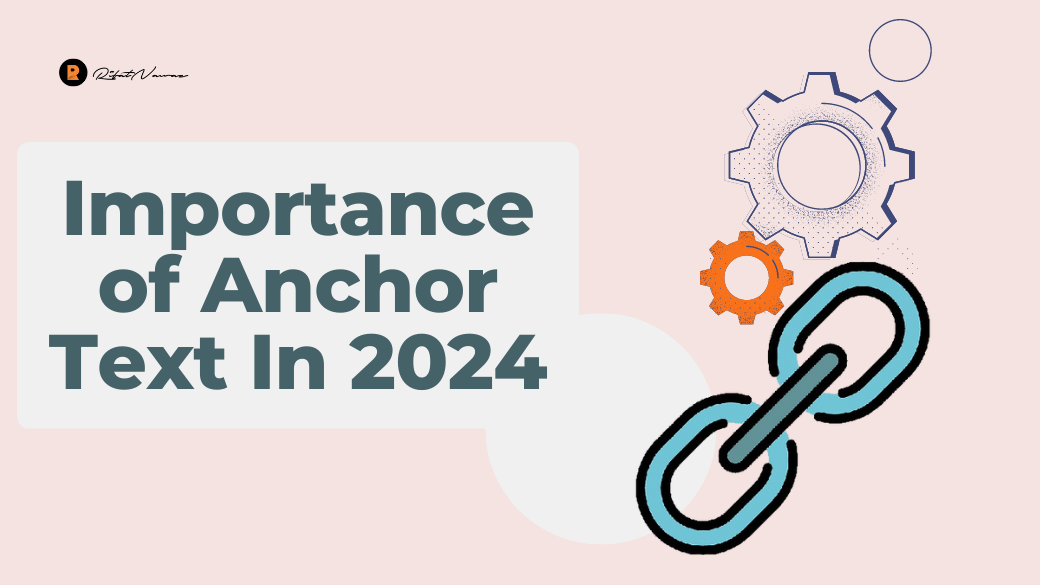In the SEO industry, anchor text refers to the clickable text within a hyperlink. It serves as a descriptor that provides users and search engines with context about the content of the linked page. Anchor text is an important part of SEO because search engines use it to understand the relevance and topic of the linked page.
Optimizing anchor text involves using relevant keywords or phrases that accurately describe the linked content while maintaining natural language and avoiding over-optimization. Strategic use of relevant anchor text can help improve the visibility and ranking of web pages in search engine results pages (SERPs). Let’s jump to deep for learn more on Importance of Anchor Text.
What is the Anchor Text in SEO?
Anchor text, also known as link text, backlink text, or link label, is the visible, clickable content inside a hyperlink. It is the text that people see and click on to move from one webpage to another, or a specific section of the same webpage.
Here’s a breakdown of the concept:
- Visually Anchor text is often underlined and colored differently from the surrounding text.
- Functionally: It tells the readers what to expect when they click the link.
- SEO Importance: Anchor text is used by search engines to determine the topic of a linked webpage. High-quality, relevant anchor text may increase the connected page's ranking in search results. It also helps to develop page or domain authority.
Here are some examples to illustrate anchor text:
- In the sentence "For more information on SEO, visit our SEO Guide: [invalid URL removed]", "SEO Guide" is the anchor text.
- Clicking this link would take you to a webpage presumably containing information about SEO (Search Engine Optimization).
Best Practices for Anchor Text:
- Descriptive: Choose words that accurately describe the content of the linked page.
- Relevant: Use anchor text relevant to the context of your own webpage.
- Keyword-rich (but natural): While including relevant keywords can be beneficial, avoid keyword stuffing. Focus on natural language that users understand.
- Variety: Use a mix of anchor text variations to avoid appearing unnatural.
Importance of Anchor Text:
Anchor text is exceptionally crucial in SEO for some reasons, serving as a little billboard and compass for both search engines and users.
1. Guiding Search Engines: A Context Clue for Crawlers
Search engines such as Google, Yahoo, and Bing are continually crawling websites, attempting to understand their content and relevance to specific search requests. Anchor text serves as a contextual cue, assisting search engines in determining the topic of the linked page.
Imagine a dark room with a box containing the webpage. You (the search engine) cannot see what’s inside, but the box’s label (the anchor text) says “White Widgets.” This label indicates that the box is more likely to contain white widgets than blue shoes. Similarly, useful anchor text informs search engines:
Idea Connection: The linked webpage likely shares a similar Idea or offers relevant information compared to the anchor text and surrounding content.
Content Value: The linked page might provide valuable or complementary information for users interested in the topic of the anchor text.
By analyzing anchor text across the web, search engines can build a more comprehensive picture of a webpage’s content and thematic connections.
2. Potential Ranking Signal: A Boost for Backlinks
Anchor text is thought to play a role in the search engine’s ranking algorithm, however, the specific formula remains unknown. Backlinks, effectively trusted votes from other websites that link to yours, are more valuable when they include relevant anchor text.
Consider this: Imagine two websites linked to yours, one with the anchor phrase “best tourist places” and the other with “used mobile phone.” The first link, with relevant anchor text, is more likely to be perceived as a valuable recommendation for your tourism business website than the random “used mobile phone” connection.
3. User Experience Matters: Clarity for Clicks
SEO is more than just ranking high; it is also about the user experience. Clear and detailed anchor text informs users about what to expect when they click on a link. This reduces confusion and annoyance, increases clicks, and keeps users interested. Remember it: search engines always love better user experience.
4. Building an SEO Strategy: Earning Backlinks with Authority
Obtaining backlinks with relevant anchor text from reputable websites is an effective SEO tactic. These backlinks indicate to search engines that other credible sites value your material, thereby enhancing your website’s overall authority and ranking potential.
Consider a reputable academic mentioning your research work (a backlink with appropriate anchor text). That citation increases the weight and trustworthiness of your work in the eyes of others (search engines).
By employing relevant and natural anchor text, you may make your website more SEO-friendly, improve the user experience, and potentially climb the search engine rankings.
Wrap Up
Anchor text is more than just clickable words; it’s an effective SEO technique. Relevant anchor text captures the attention of both users and search engines by providing context and potentially impacting ranking. Use a deliberate combination of descriptive anchor text to improve the user experience, develop authority through backlinks, and ultimately boost your website’s SEO potential.
Well, right now you know about the importance of anchor text, so let’s apply it to improve your article and achieve the goal.

